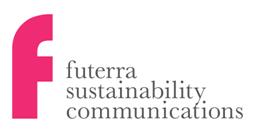 “No, no! The adventures first. Explanations take such a dreadful time”. So said the Gryphon to Alice in Lewis Carroll’s book of her eponymous “Adventures in Wonderland”. It strikes me that this pretty much epitomises the way we should engage each other in addressing our own pressing sustainability challenges.
“No, no! The adventures first. Explanations take such a dreadful time”. So said the Gryphon to Alice in Lewis Carroll’s book of her eponymous “Adventures in Wonderland”. It strikes me that this pretty much epitomises the way we should engage each other in addressing our own pressing sustainability challenges.
From a communications perspective we’ve merrily chuntered on gathering the evidence, collating the information, amassing data on the scale, urgency and breadth of the issues. Be it climate change, ocean acidification or biodiversity loss. The case has been made pretty emphatically. It’s practically unequivocal. Unless you’re some scientifically illiterate, ideologically driven nutter. But let’s not dwell on those particular maverick fringes.
We’ve then attempted to rationalise with people to convince them through the sheer weight of substantiation that change is required. Playing to a common sense of enlightened self-interest, or self-preservation. Somehow this logical approach always falls short in delivering what’s needed.
There is something about the very potency of the burgeoning proof that so often sends us into a state of denial. We retreat to a “too big, too ugly, too scary, too late” type of fatalistic mindset. The enormity of change required intimidates us or generates a massive psychological “bystander effect” – in which we assume the pointed nature of the task in hand means that someone else must be doing something about it. When in fact that “someone else” is us, both personally and collectively. We’ve all got to do something.
And that’s the key word: “got”. The sense of obligation, the instructed need to change behaviours often creates reluctance. A rejection of or resistance to the things we know we ought to be doing. A childish, kneejerk, post-rationalisation way of seeing that short-haul flight as somehow deserved or essential. A self-justifying plea that “everyone else is doing it, so why shouldn’t I?”. The social proof of inaction is all around us, letting all but the dedicated pioneers off the hook.
Let’s face it, denial, defeatism or disavowal are relatively attractive places to be. In true Machiavellian style we slyly sidestep our moral duty to change. We retrench to our immediate physical and temporal concerns. Businesses have been the same, beckoning on their own “Kodak moments” by reverting to short-term economic concerns even if they are, as Al Gore recently described our financial system, “functionally insane”.
In the dozen or so years we’ve been working on “making sustainable development so desirable it becomes normal” at Futerra we’ve always believed that people will change the world because they want to, not just because they have to. If we want to subvert the dominant paradigm we need to have more fun than “they” are – and let them know while we’re doing it!
And what better way to do this than by inspiring them to actively embrace the forthcoming adventures towards sustainability? The journey ahead is likely to be at times bumpy and uncomfortable but the prospect of the creative disruption to come should be exciting us. As with Kodak’s shelving of the digital camera in the seventies we don’t get to choose not to creatively disrupt our own lives and business models. Because if we don’t, someone or something else will! Welcome to a world of transformation of both lifestyles and commerce.
This is not about baby-steps, or tip-toeing along a timid trajectory of incremental change. It’s about the possibility of dramatic reinvention, resurgence and reinvigoration. It is the biggest collective challenge we’ve faced in all of human history. We may not like the tempest of unsustainability aligning around us but we’re the lucky generation that gets to surf this tsunami or be swamped by it.
Five years ago I went all the way round the world without flying. As much a celebration of the pleasures of overland, grounded travel – the smooth transition of landscape, culture, people and language – as a carbon-concerned critique of aviation. For me it was all about the rediscovery of a sense of adventure in the way we travel. A sojourn of smart substitutions, not sacrifices. A bounty of benefits, not a bane.
That was my slow, low carbon quest. My own small but perfectly formed, personal, proactive response to the sustainability maelstrom. I’ll be sharing insights from the journey at the Royal Geographical Society’s celebration of Adventures in Sustainability, in London this May. As the world’s first Professor of Sustainability Leadership puts it, “Chosen or not, sustainability is the adventure of our time.”
He, Professor Jem Bendell, is speaking at the same event, and explaining what it means to be intellectually adventurous. Some of his books with Greenleaf have certainly broken the mould, such as Terms for Endearment and The Corporate Responsibility Movement, and his new Institute’s work on the monetary system and its alternatives is certainly probing deeper into systems that need examination.
Our collective comeback to the gathering storm has already begun, and it is in overcoming the resistance to change that the fertile solutions lie. Brace yourselves people. This is going to be one hell of a ride.
Futerra Sustainability Communications
www.futerra.co.uk



